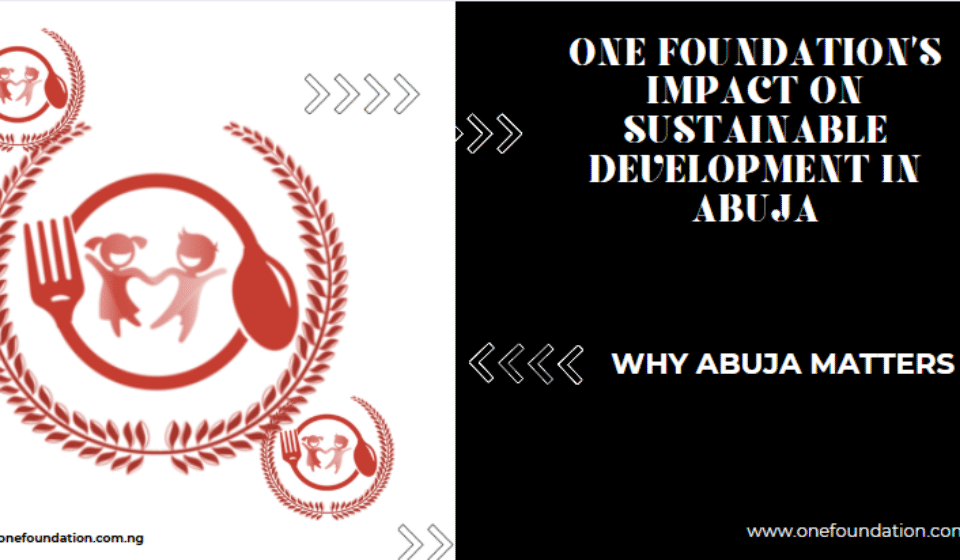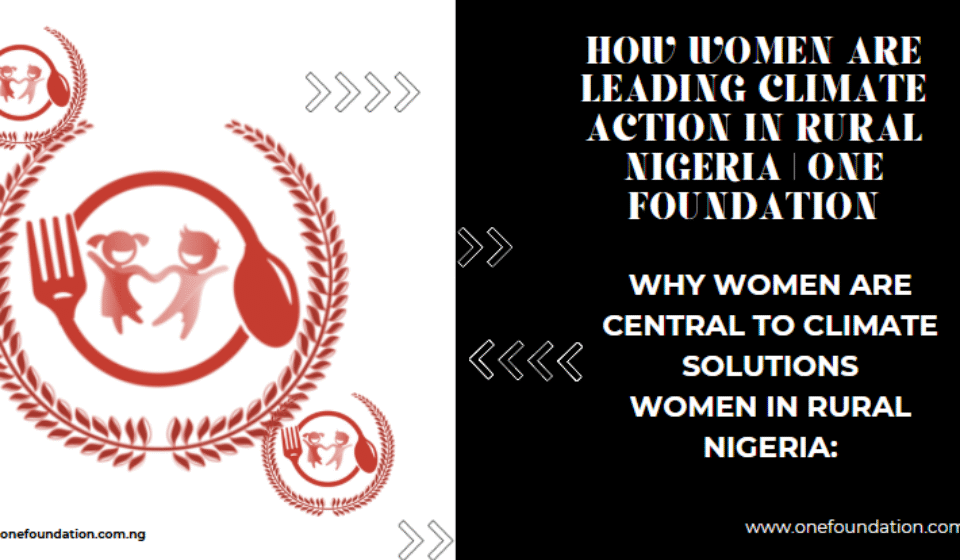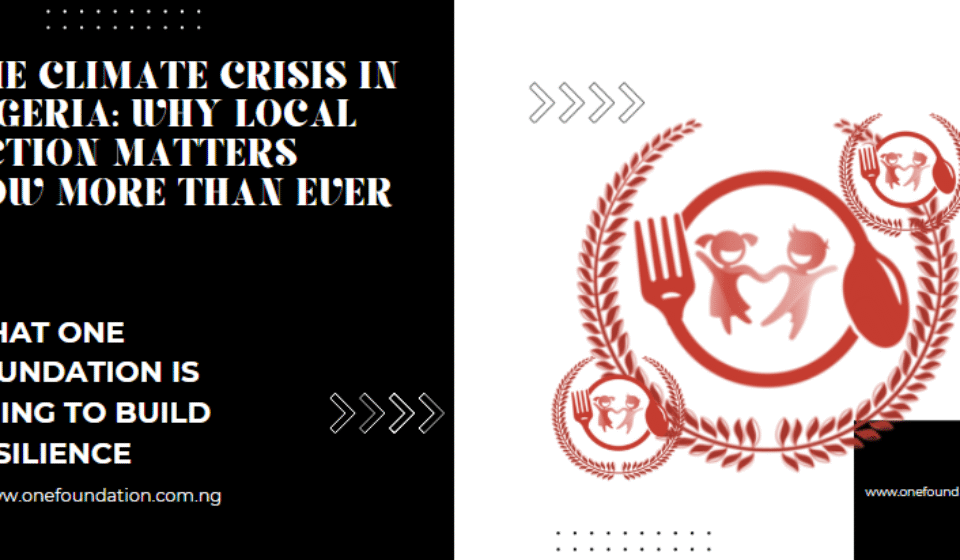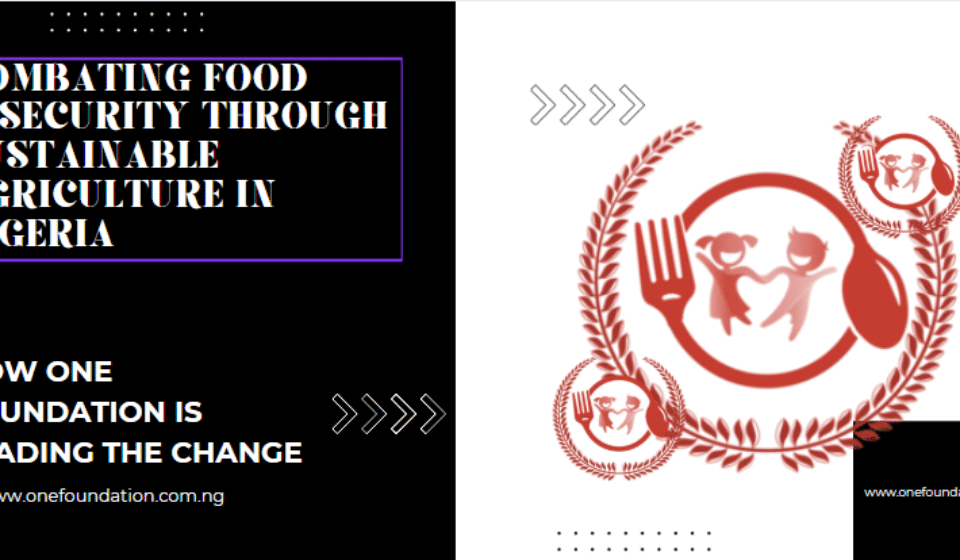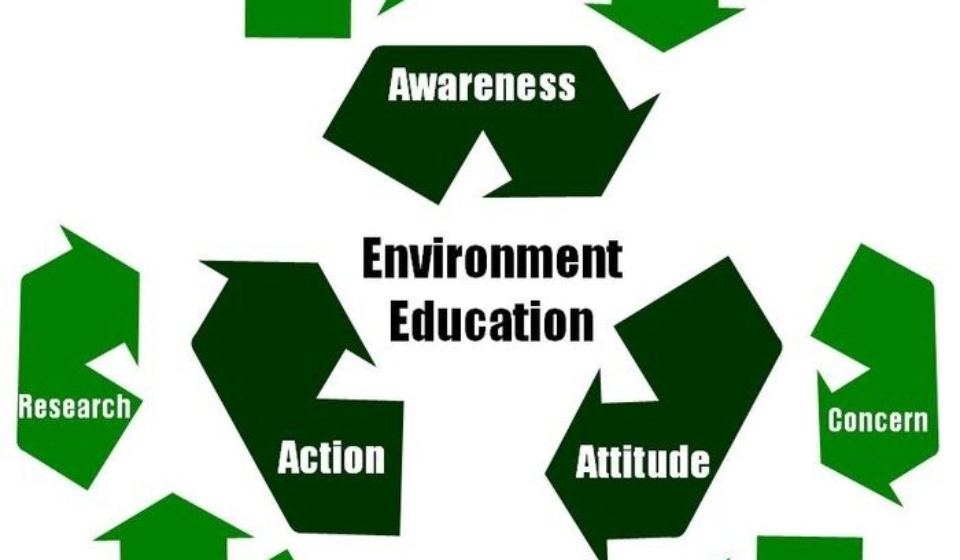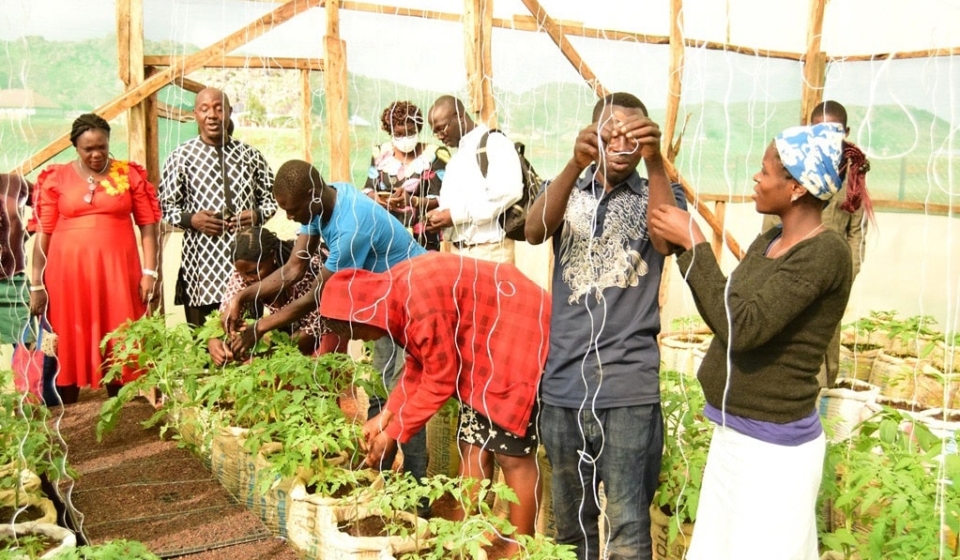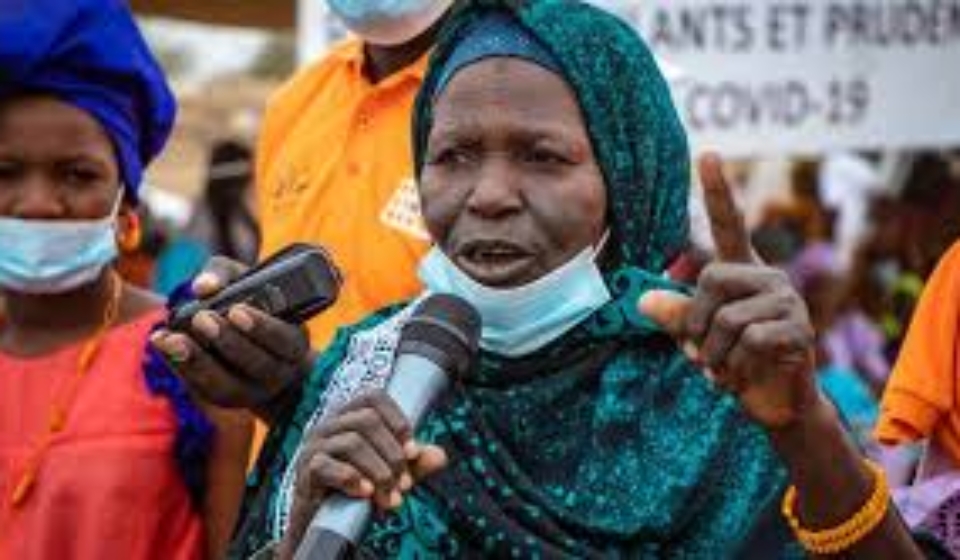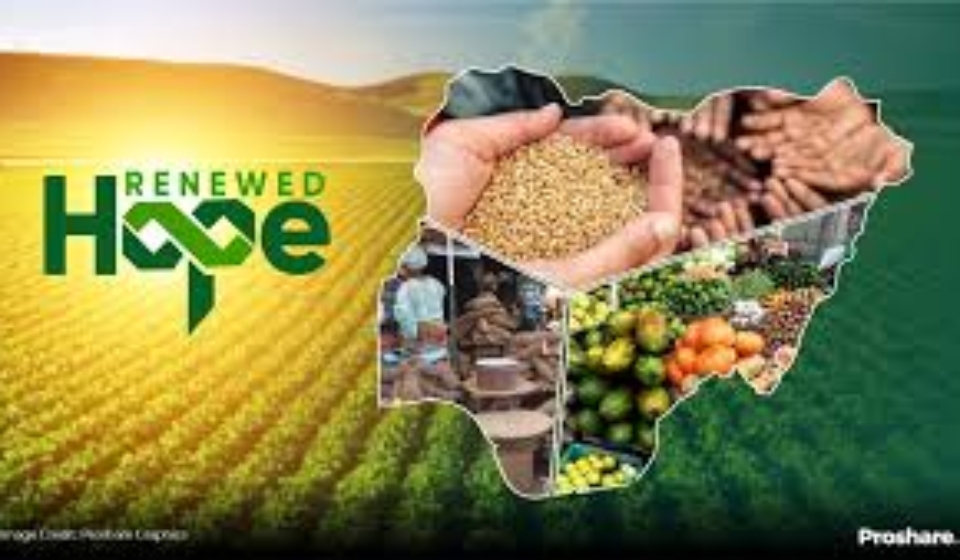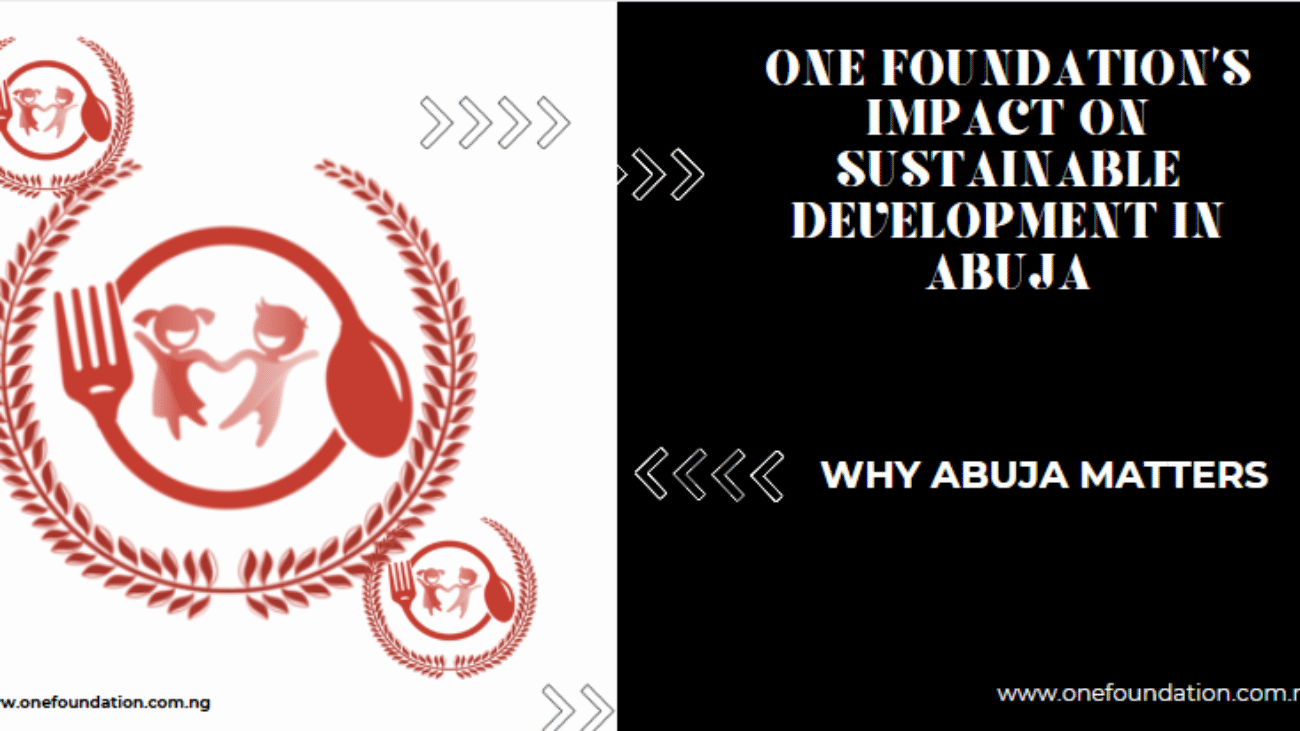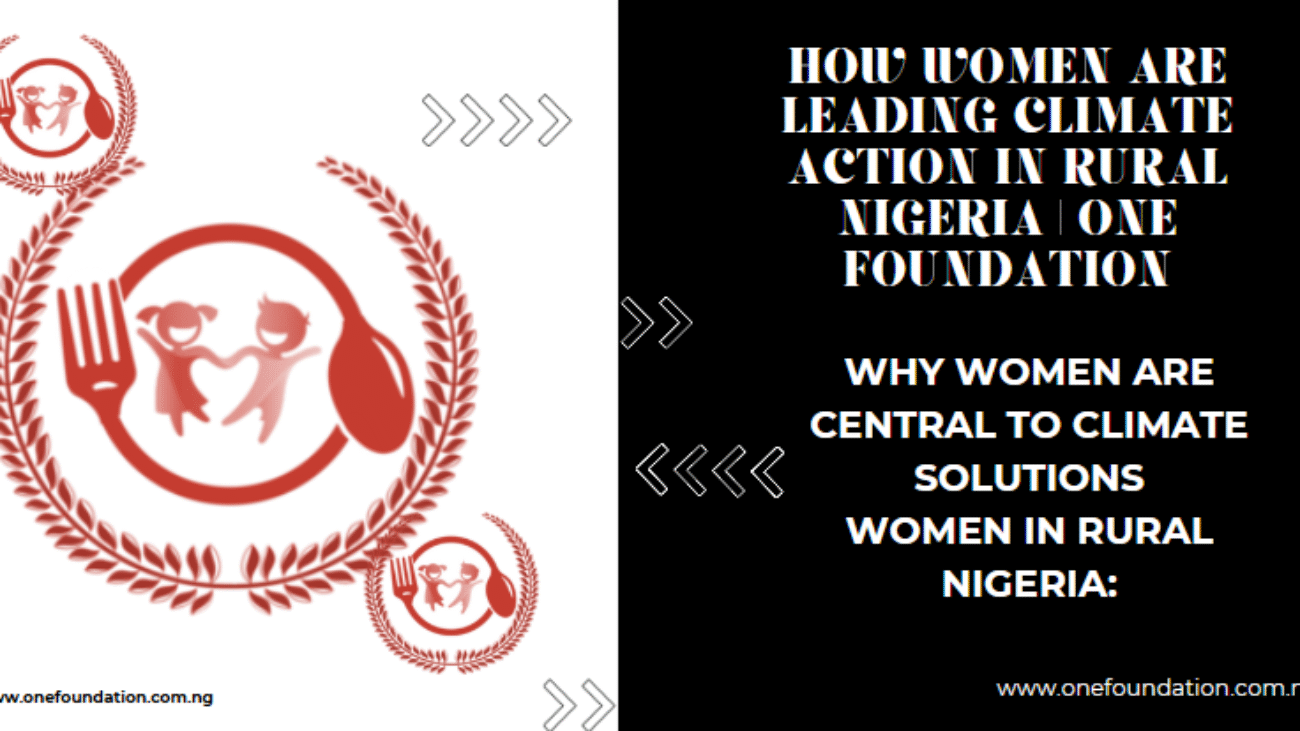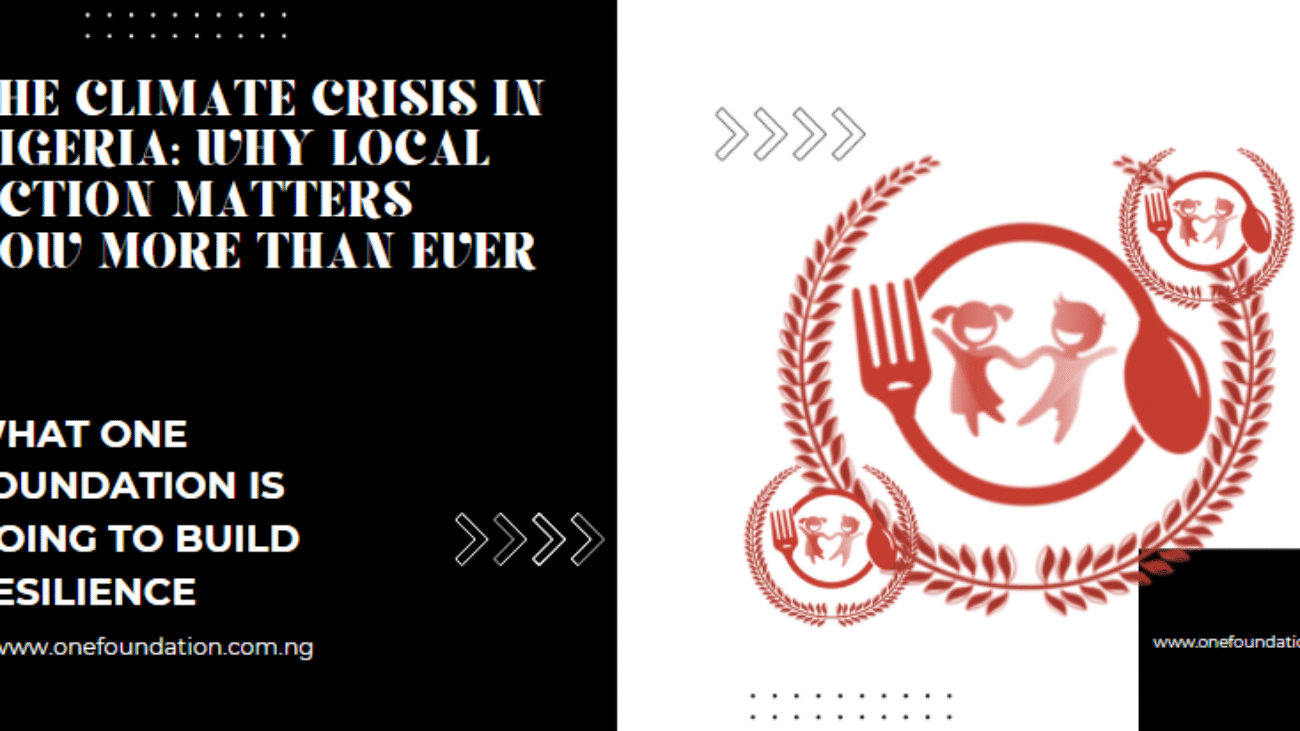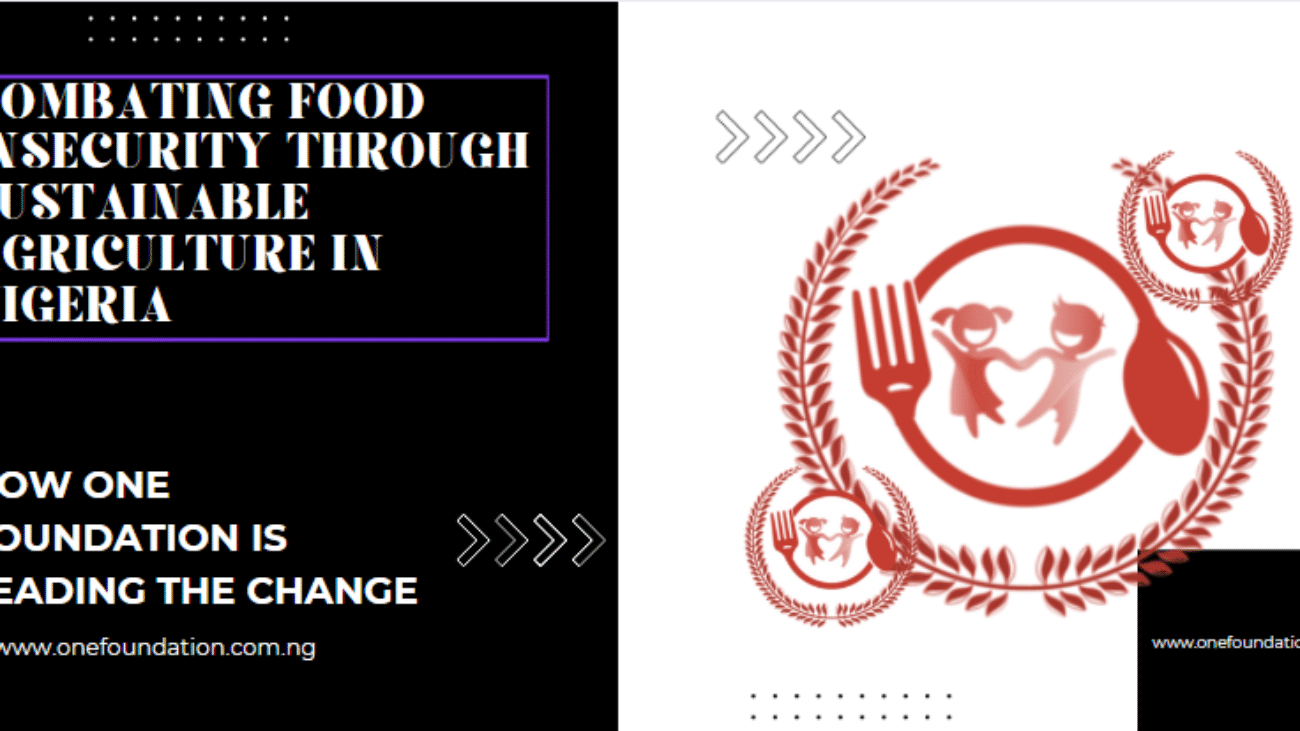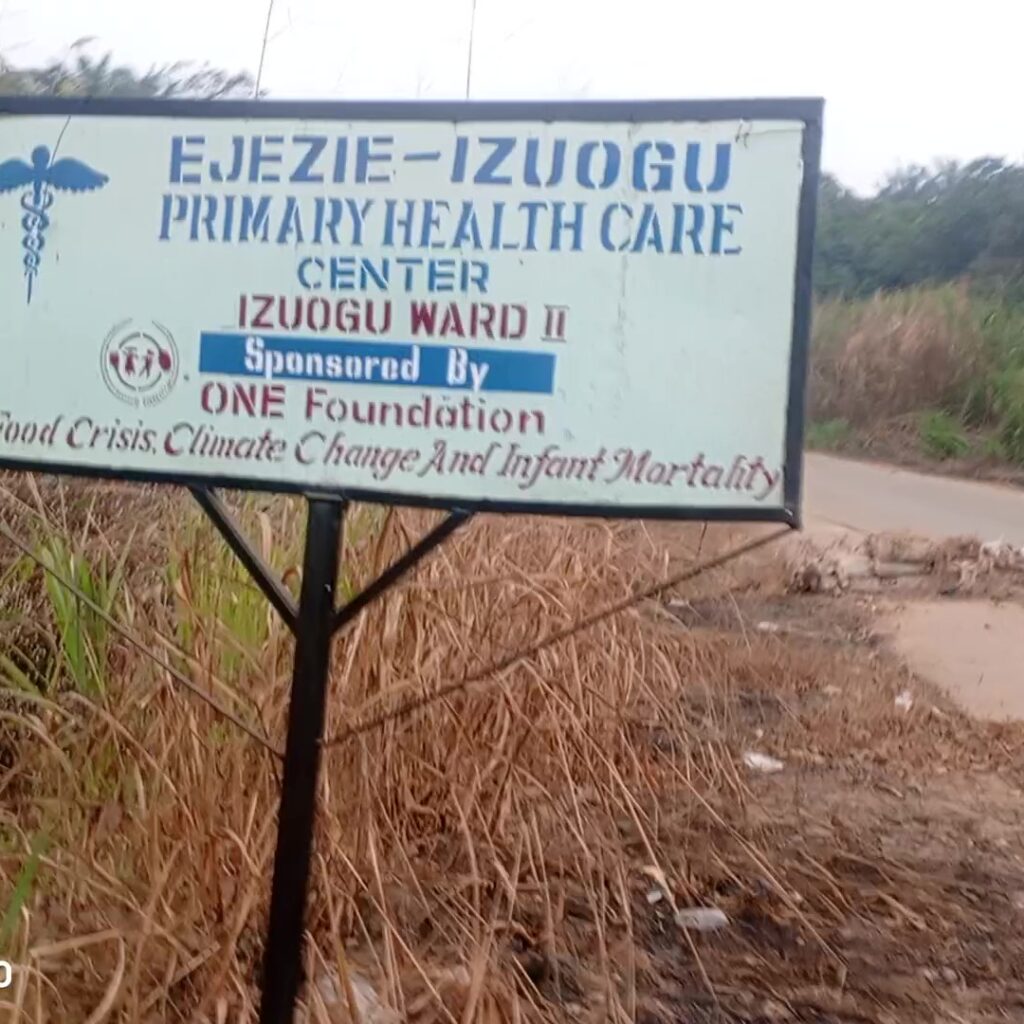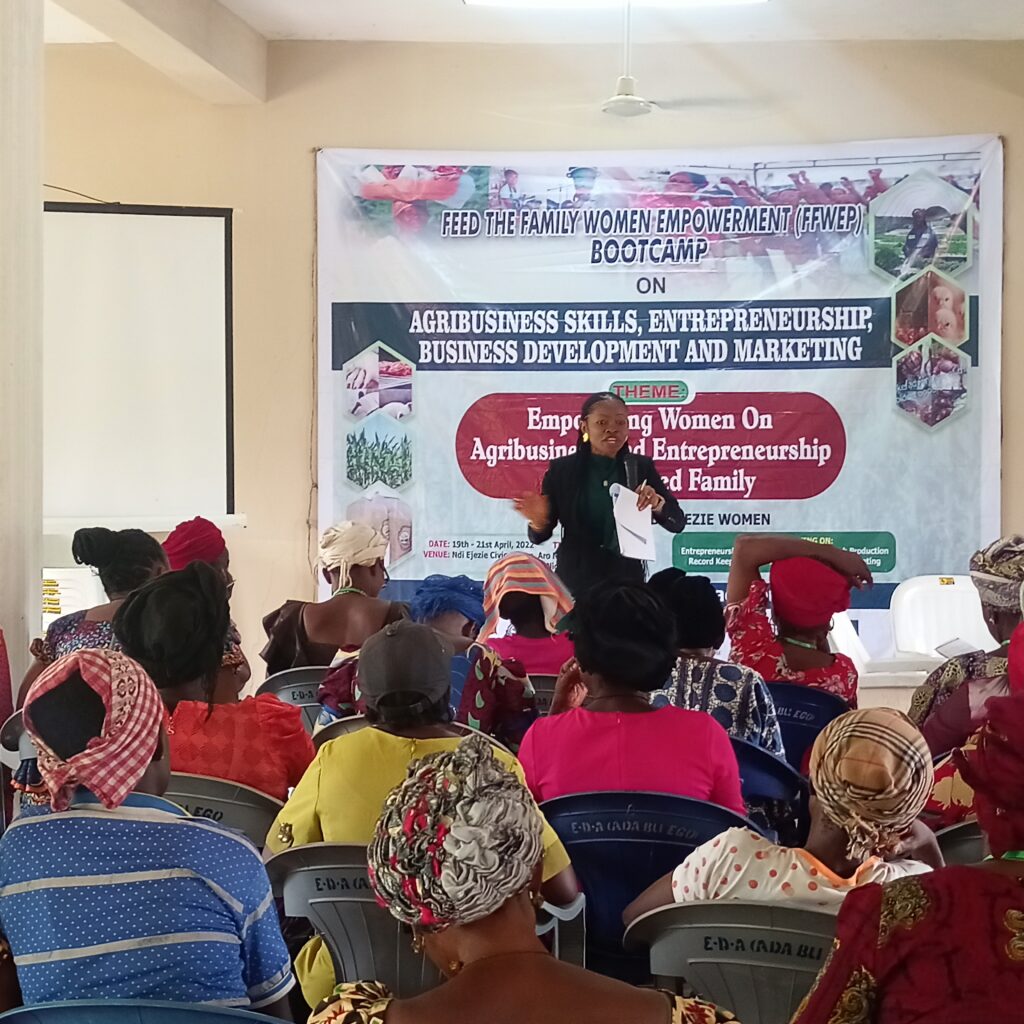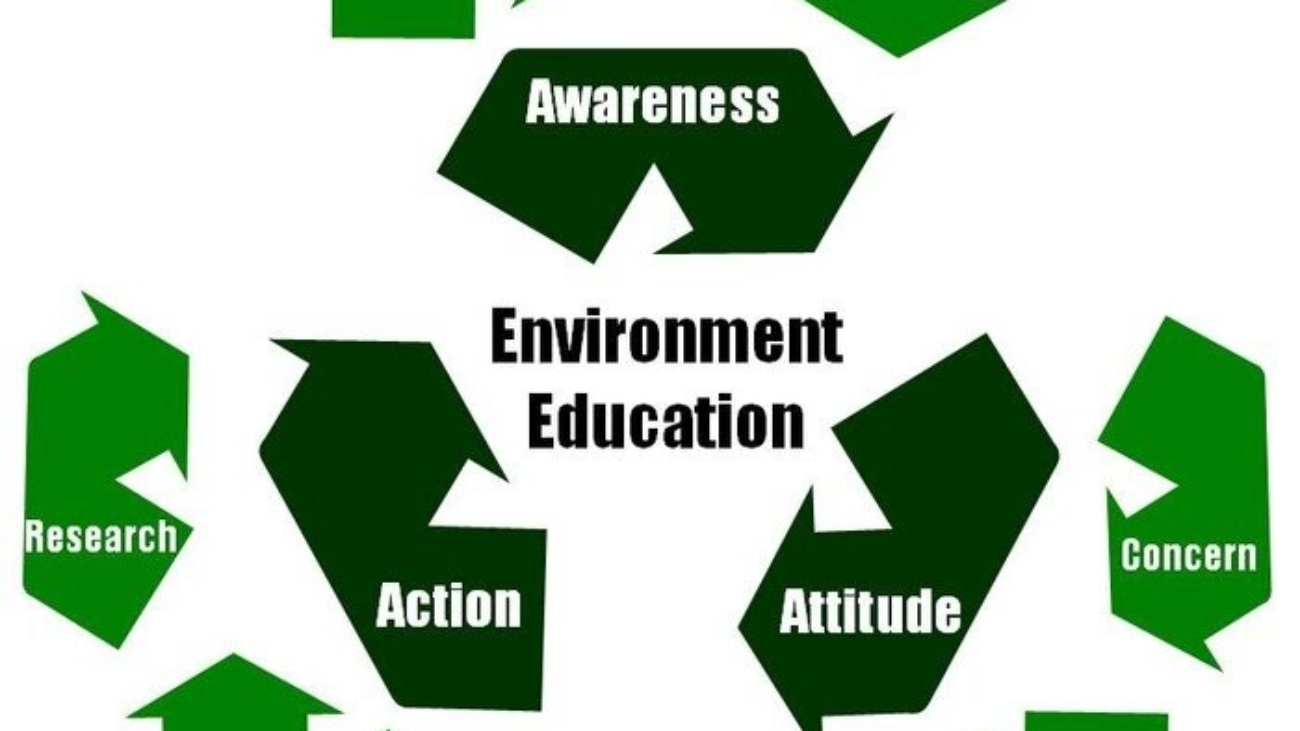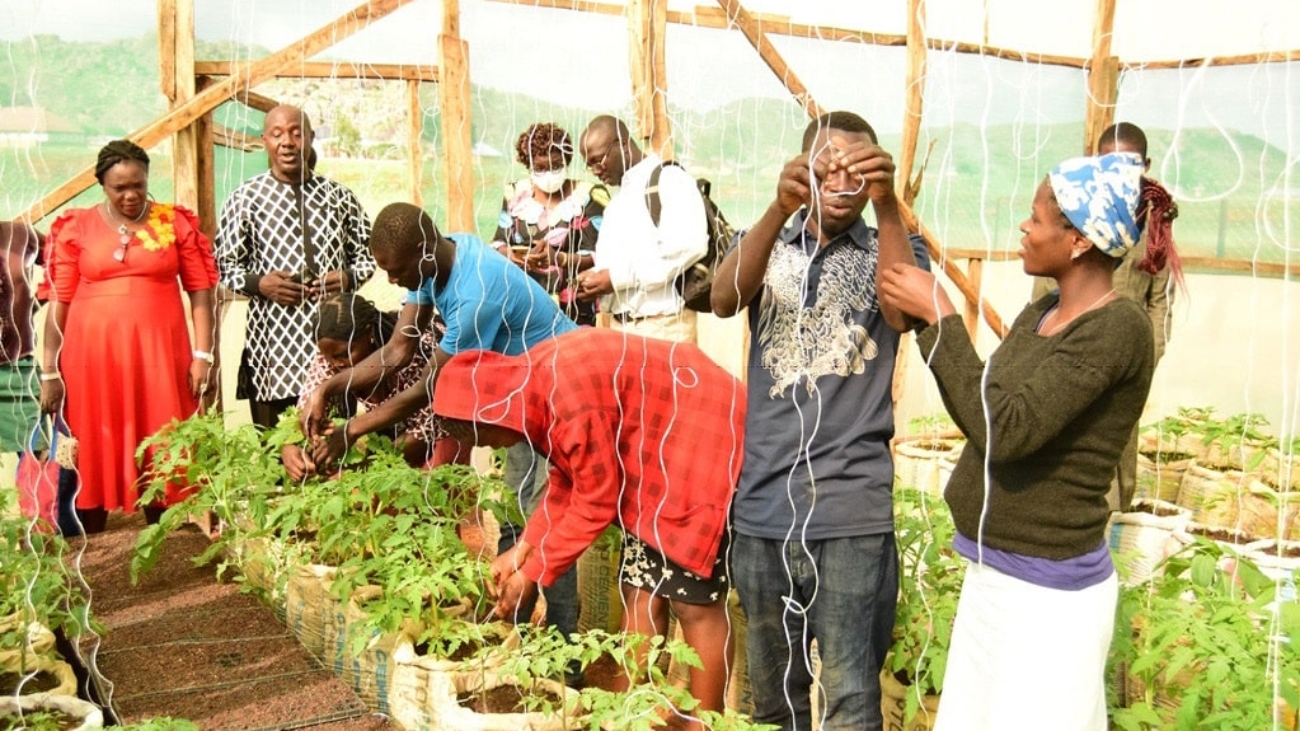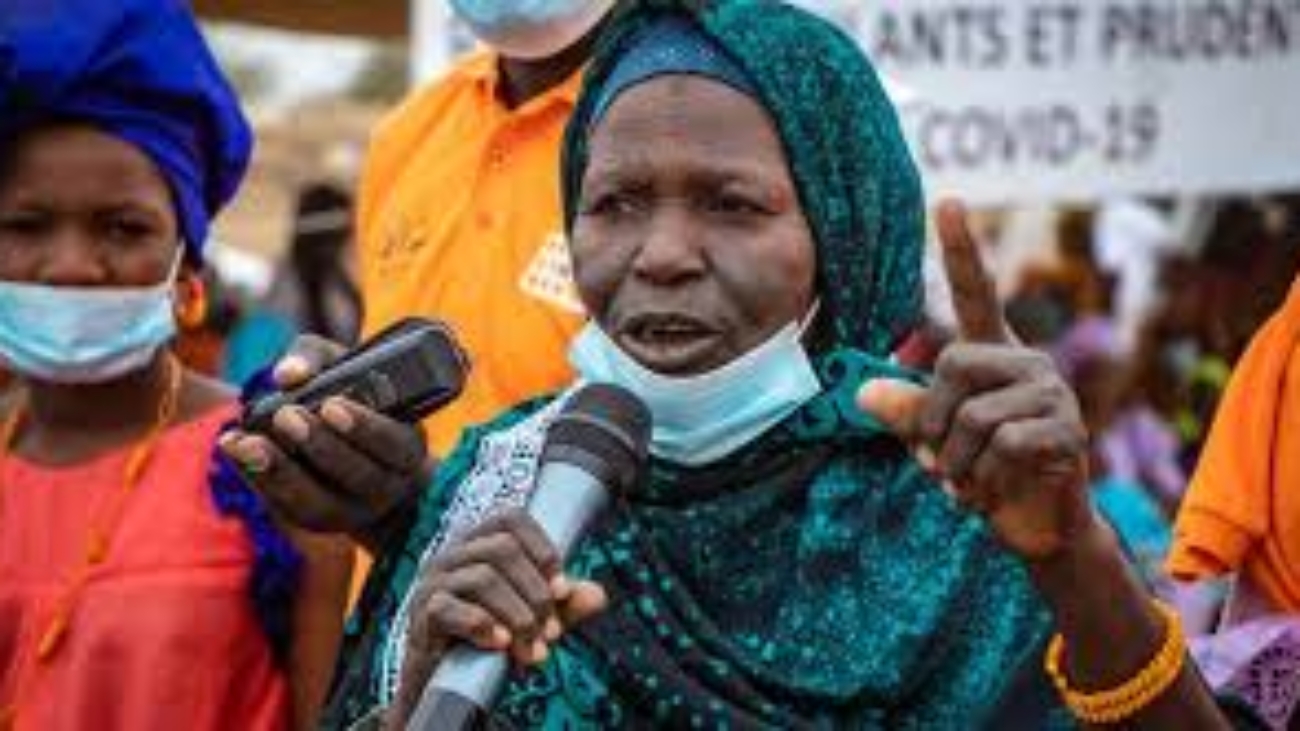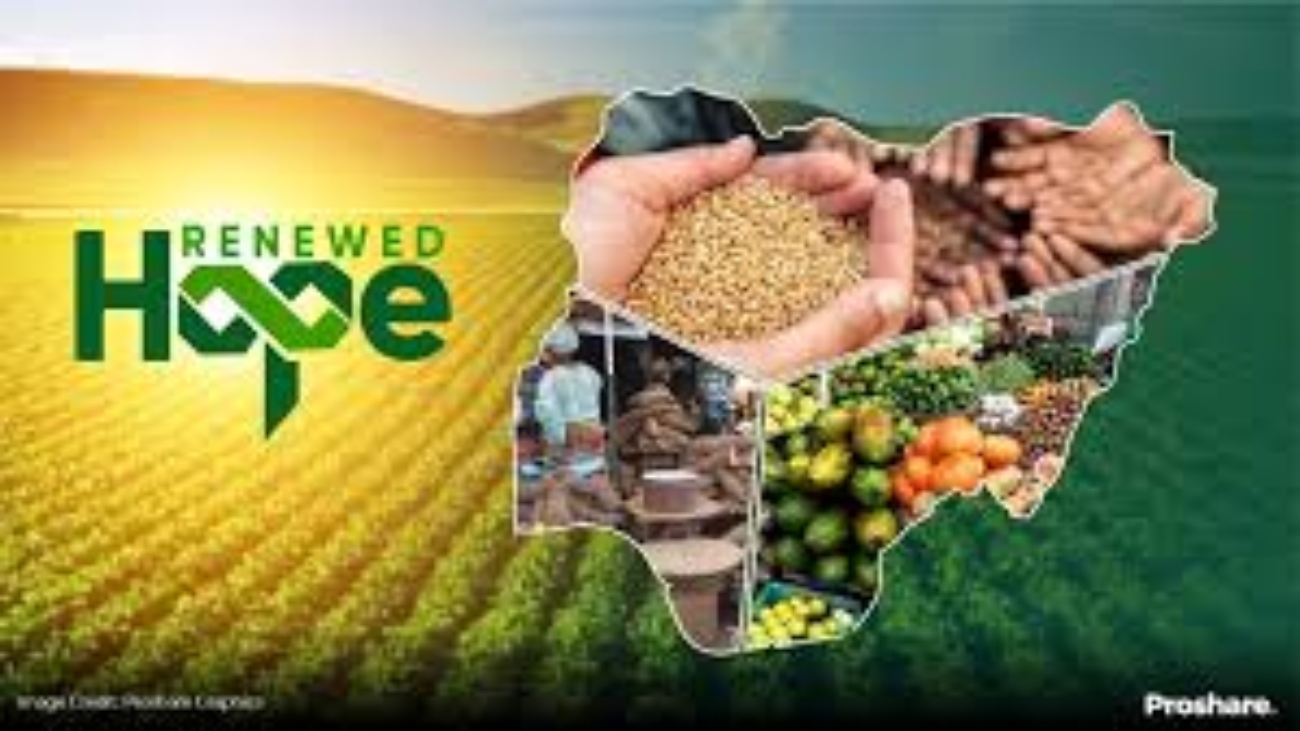The Renewed Hope Agenda and the Promise of Food Security: One Foundation’s Role in Nigeria’s Agricultural Future
With Nigeria’s population growth and increased vulnerability to climate change, food security has become a national priority. The Renewed Hope Agenda, led by the Nigerian government, aims to ensure that every Nigerian has access to sufficient, nutritious, and affordable food. At One Foundation, we are committed to supporting this agenda by working with farmers, communities, and stakeholders to promote sustainable and resilient agriculture practices.
Understanding the Food Security Challenge in Nigeria
Food security in Nigeria faces several barriers, including:
- Climate Change Impacts
Erratic weather patterns, increased droughts, and flooding disrupt crop yields and food production, affecting food availability and prices.
- Inadequate Agricultural Infrastructure
Limited access to modern farming tools, storage facilities, and efficient transport systems has hampered food distribution and contributed to post-harvest losses.
- High Dependence on Food Imports
Heavy reliance on imported food products has increased Nigeria’s vulnerability to global food price fluctuations, creating a need for local production enhancement.
- Economic Barriers and Farmer Marginalization
Many Nigerian farmers, especially smallholders, struggle to access financial support, quality seeds, and modern farming techniques, impacting productivity and income.
How the Renewed Hope Agenda Addresses Food Security
The Renewed Hope Agenda is built on four key pillars to create a food-secure Nigeria:
1. Expanding Access to Agricultural Resources
Through strategic partnerships, the agenda aims to make high-quality seeds, fertilizers, and farming equipment accessible and affordable to smallholder farmers.
2. Improving Storage and Distribution Infrastructure
The agenda emphasizes investment in cold storage facilities, transportation networks, and supply chain improvements to reduce food wastage and ensure year-round availability.
3. Promoting Climate-Smart Agriculture
Encouraging sustainable farming practices and climate adaptation strategies to help farmers deal with climate variability and build resilient farming communities.
4. Supporting Local Food Production Initiatives
The focus is on enhancing local crop production to reduce dependency on imports and strengthen the national economy.
One Foundation’s Initiatives Aligned with the Renewed Hope Agenda
At One Foundation, our programs aim to complement the government’s Renewed Hope Agenda, particularly in empowering communities and promoting sustainable food systems.
1. Training Farmers in Climate-Smart Practices
- We organize workshops on sustainable agriculture techniques like crop rotation, water conservation, and organic farming.
- Farmers are trained to diversify crops and adopt drought-resistant seeds to mitigate climate impacts.
2. Supporting Community-Based Food Systems
- Through our community farming projects, we help local farmers improve crop yield and productivity.
- Cooperative models enable small farmers to access markets, receive fair prices, and enhance their income security.
3. Advocating for Agricultural Finance Access
- We assist farmers in obtaining low-interest loans and grants to invest in better seeds, tools, and sustainable practices.
- Partnerships with local banks and government programs provide financial literacy training to help farmers effectively manage resources.
4. Building Infrastructure for Food Storage and Distribution
- One Foundation is piloting the establishment of community storage facilities that minimize post-harvest losses and help stabilize food supplies year-round.
- Logistics support ensures that local products reach markets efficiently, reducing spoilage and improving income for farmers.
Why Food Security Matters for a Sustainable Future
Food security is not just about ending hunger; it’s essential for creating a sustainable and resilient Nigeria. With food security, Nigeria can achieve:
- Better Health Outcomes: Access to nutritious food reduces malnutrition and improves community health.
- Economic Stability: A strong agricultural sector creates employment opportunities and reduces reliance on imports.
- Environmental Protection: Sustainable farming practices help conserve natural resources and preserve biodiversity.
How You Can Support Food Security Efforts
Creating a food-secure Nigeria requires collaboration from all sectors. Here are ways you can contribute:
- Volunteer with Our Farming Programs: Join our farmer training workshops and help support smallholder farmers.
- Donate to Food Storage Initiatives: Your support helps build storage facilities that reduce food loss and increase food availability.
- Advocate for Food Security Policies: Support efforts to expand agricultural finance and improve market access for local farmers.
Join Us in Securing Nigeria’s Food Future
At One Foundation, we are dedicated to achieving a sustainable food future for Nigeria. The Renewed Hope Agenda provides a powerful framework; together, we can make food security a reality for all Nigerians.
For more information on how we’re working towards a food-secure Nigeria, visit our Projects Page.
Empowering communities, enhancing agriculture, and ensuring a food-secure Nigeria—together, we can make it happen.

